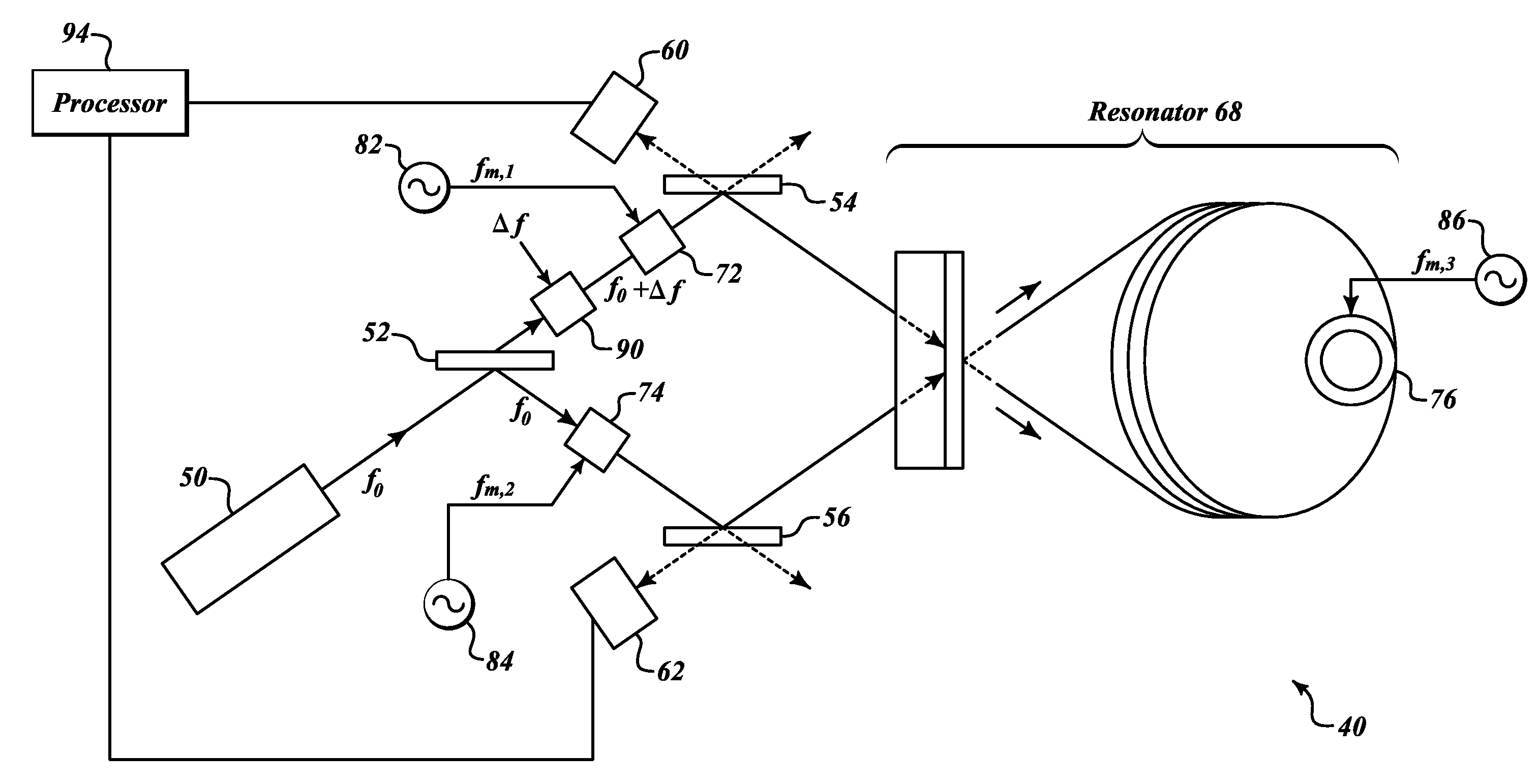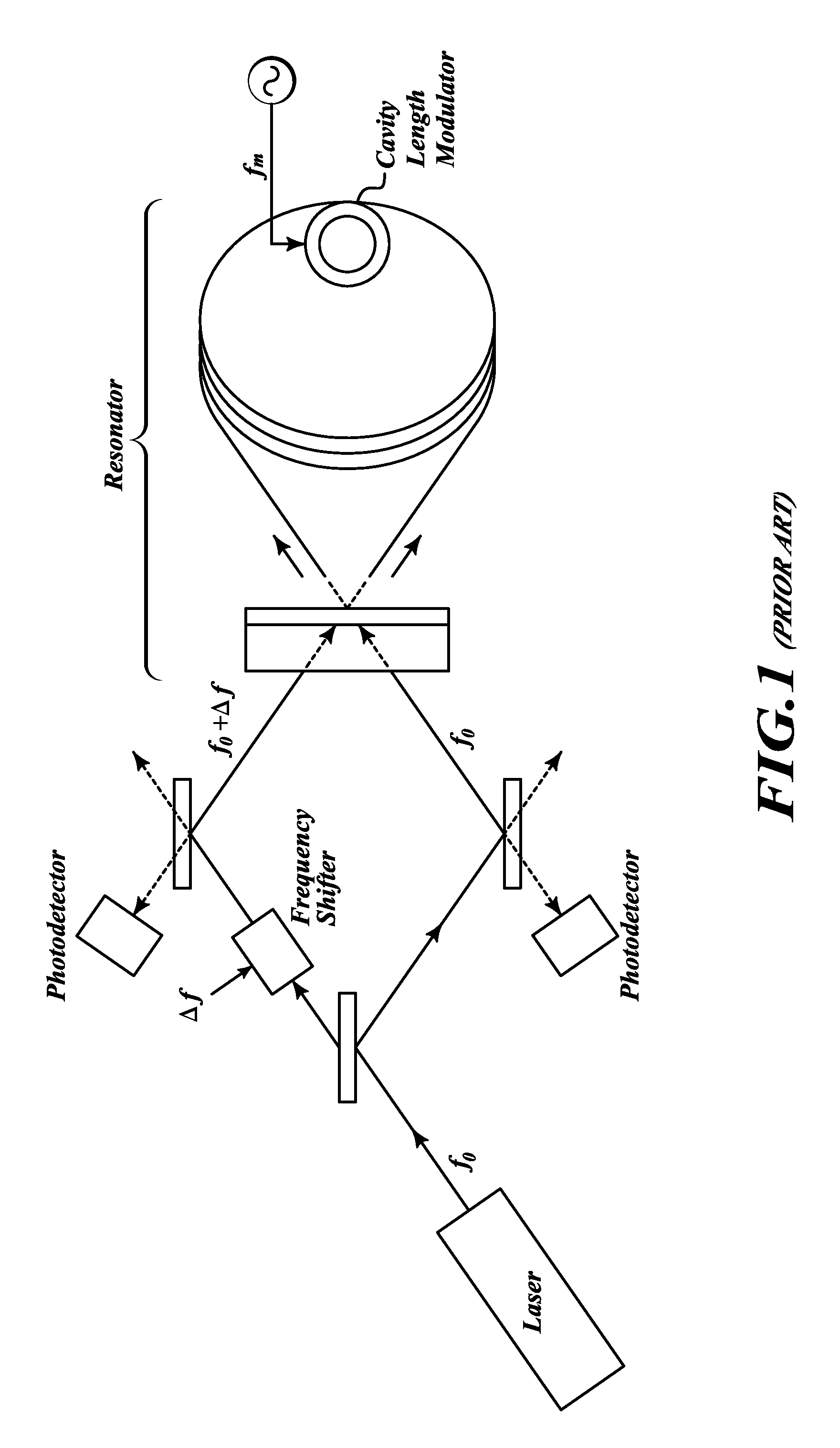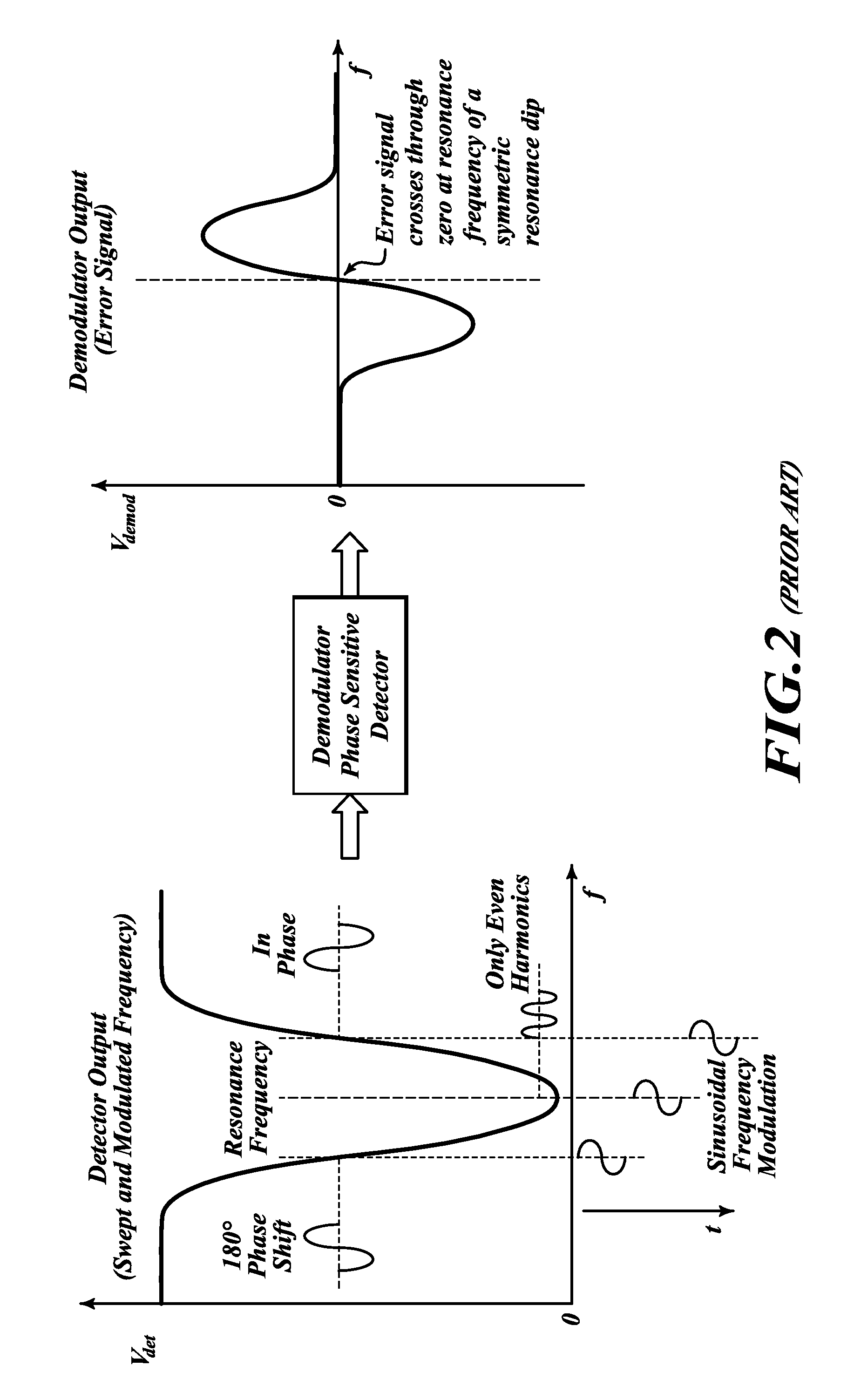Rfog modulation error correction
a technology of rfog modulation and error correction, applied in the direction of speed measurement using gyroscopic effects, instruments, surveying and navigation, etc., can solve the problems of insufficient method accuracy for rotation sensing rotation sensing error
- Summary
- Abstract
- Description
- Claims
- Application Information
AI Technical Summary
Problems solved by technology
Method used
Image
Examples
Embodiment Construction
[0022]FIG. 8 shows an embodiment of the present invention that eliminates rotation sensing errors due to modulator imperfections and backscatter. An RFOG 40 includes a light source 50, beam splitters 52-56, photodetectors 60, 62, a resonator 68, modulators 72, 74, 76 with associate modulation generators 82, 84, 86, a frequency shifter 90, and a processor 94.
[0023]A common cavity length modulator 76 performs resonance detection and eliminating errors due to modulation imperfections. Cavity length modulation can be performed by a piezoelectric tube wrapped with resonator fiber, or a piezoelectric element placed on a resonator mirror. Independent intensity modulation (the intensity modulators 72, 74) of the two counter-propagating beams is used for encoding each light wave with a unique signature such that unwanted intensity signals due to backscatter can be rejected by signal processing. The frequencies of the intended intensity modulation are made different and not harmonically relat...
PUM
 Login to View More
Login to View More Abstract
Description
Claims
Application Information
 Login to View More
Login to View More - R&D
- Intellectual Property
- Life Sciences
- Materials
- Tech Scout
- Unparalleled Data Quality
- Higher Quality Content
- 60% Fewer Hallucinations
Browse by: Latest US Patents, China's latest patents, Technical Efficacy Thesaurus, Application Domain, Technology Topic, Popular Technical Reports.
© 2025 PatSnap. All rights reserved.Legal|Privacy policy|Modern Slavery Act Transparency Statement|Sitemap|About US| Contact US: help@patsnap.com



